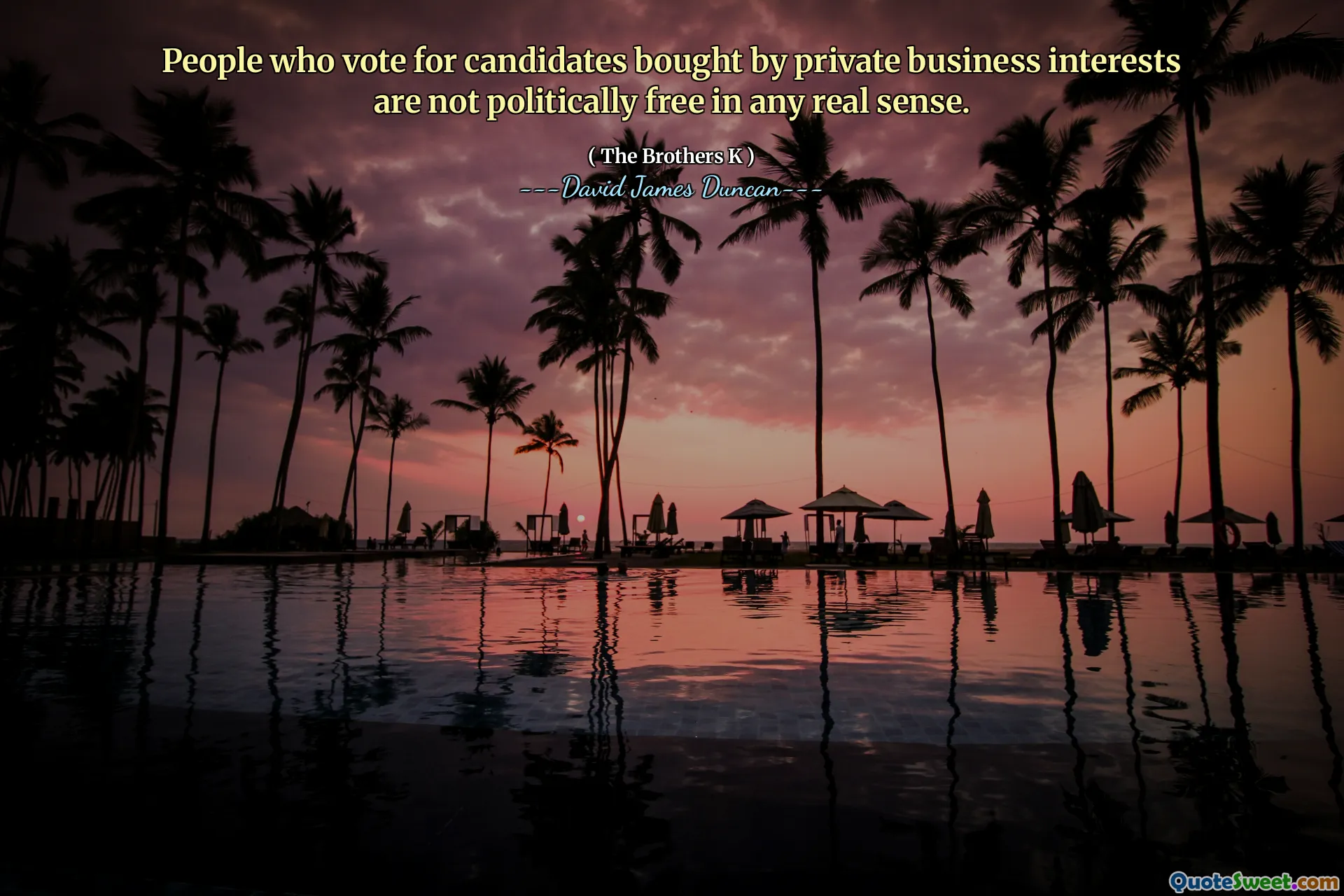
People who vote for candidates bought by private business interests are not politically free in any real sense.
This quote incisively addresses the fundamental issue of political autonomy and the influence of money in politics. When voters support candidates who are effectively controlled or heavily influenced by private business interests, it challenges the very concept of democracy—the idea that people govern themselves through free and fair elections. The underlying message is that political freedom isn't just about the ability to vote, but about having candidates and representatives who truly serve the public interest rather than powerful economic entities. This raises profound concerns about the integrity of political systems when private interests can dictate policy through financial means, effectively eroding the democratic process. It also compels reflection on the responsibility of voters to seek transparency and accountability, and the need for systemic changes to reduce corruption and corporate influence. The quote invites a deeper exploration of what it means to be "politically free"—not just the formal right to participate, but the real freedom to have a say in who governs and how decisions affect society. This tension between economic power and political liberty is a persistent threat to equitable governance and social justice, demanding vigilance and active civic engagement to protect democratic freedoms.






